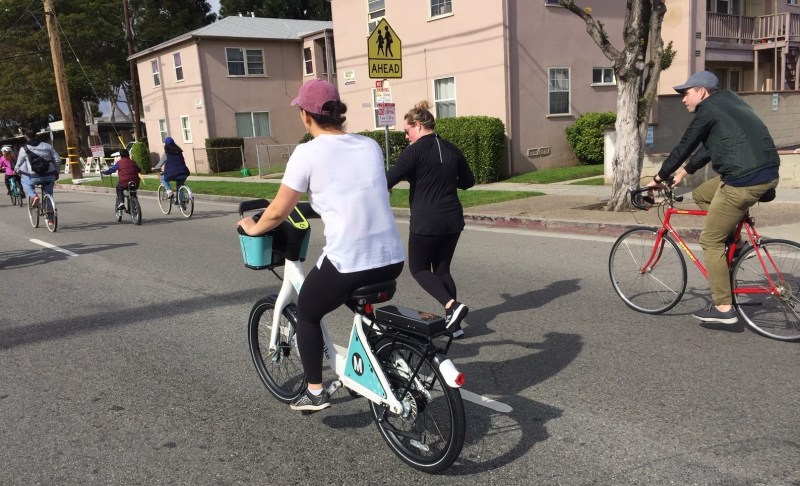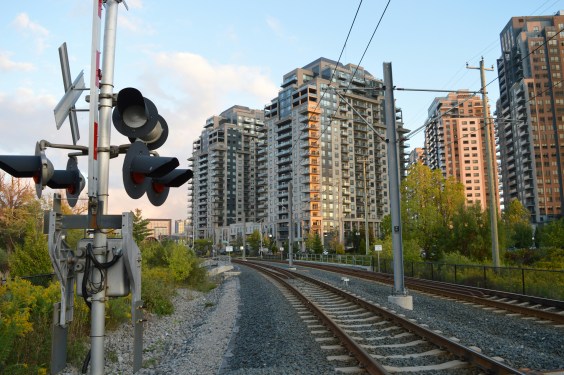Coronavirus has very much arrived in Southern California. Infections and deaths are growing. Schools are closing. Events are canceled. All Angelenos need to take precautions to "flatten the curve." Even if you personally are not in a high risk group, your actions will help curb the spread and that will help to ensure that health care providers are not overwhelmed by the COVID-19 pandemic.
For some general COVID-19 reading today, SBLA recommends LAist's No-Panic Guide to Coronavirus in L.A., Tomas Pueyo's data- and graph-heavy Coronavirus: Why You Must Act Now at Medium, Inclusive Action for the City's The Coronavirus’ toll on low-income workers and entrepreneurs, and Tamika Butler's Finding empathy and equity in a crisis at Toole Design.
What about bicycling duing the coronavirus pandemic?
First off: nothing in this article should be construed as encouraging symptomatic folks to bicycle - if you're coughing and/or feverish, please rest, self-quarantine, and seek actual medical advice.
In much of the United States and probably much of the world, driving and transit are down. Several U.S. cities are seeing higher numbers of bicycling during the past couple weeks. New York City is reporting increased cycling and record bike-share usage. Chicago is experiencing a biking boom. Bike-share usage is also making a comeback in China.
People who have the option to bike appear to be avoiding the confined spaces of trains, buses, taxis, and ride-hail. These are fairly dense fairly transit-rich places with plenty of car-free households. That setting isn't the case for a lot of Southern California.
The medical advice is to isolate - and this means minimizing non-essential travel. If you bike/walk/bus/drive to a crowded place, then your travel mode probably won't matter as much as the place you went to. Nonetheless, for folks who need to get somewhere, cycling remains an important and worthwhile travel choice all over, given the advice to practice social distancing: keeping a six-foot distance from others.
In The Verge, Vanderbilt University infectious disease expert William Schaffner recommended substituting walking to avoid crowded conditions on transit, “People who take relatively short rides might do well to just walk and get a little exercise." This advice seems to also apply to bicycling.
BikePortland sounds similar, noting:
And if you’re able to pedal a bicycle, it could be a good way to stay healthy and sane amid the outbreak. Research has shown that cycling boosts the immune system and we all know it can help reduce stress. There’s also a more pragmatic reason to bike — especially for those who usually rely on public transit. With social distancing essential, if you opt to ride instead of use transit you will open up space on buses and trains for others who don’t have that option.
One other thing to keep in mind is avoiding serious injuries at a time when health care systems become strained. The UK site Cyclist, calling bicycling "the ultimate self-isolation," interviewed cyclist physician Dr. Jonathan Rial who gives advice generally targeted toward recreational road cyclists:
Riding outdoors – provided you have no symptoms and there is no official limit on travelling – would be good for body and soul, but there is a very important side issue to consider – the risk of injuring yourself in a fall or crash.
If the Italian experience is replicated here – and, heaven forbid, it looks likely – then the healthcare system would be completely overwhelmed. The response and treatment time for you if you come off your bike would be significantly delayed and could add an unnecessary burden on a system under extreme pressure.
What about bike-share?
Bicycling Magazine has this advice from two physicians:
If an ill person has used it right before you, they could leave behind their viruses on the handlebars. If you wipe it down before you use it, that should protect you against being exposed to many different diseases, Labus says.
And, so far the information points to when things are outside and have sun exposure (UV light)—like bikes sitting in docks—that helps sanitize the surface.
In general, using bike shares should be okay, but it wouldn’t hurt to have gloves on. And, be sure to wash your hands as soon as you can and avoid touching your face, Nieman says.
Metro spokesperson Dave Sotero states, "Metro Bike Share is reviewing cleaning protocols for bikes and stations and ensuring they are compliant with CDC recommendations." Sotero says that similar measures apply to Metro Bike Hubs, and that Metro is being flexible with jurisdictions looking to cancel/postpone Metro sponsored open streets events.
Be careful out there. The situation is changing daily, so please listen to advice from real medical authorities - but don't let the coronavirus outbreak keep you from doing some bicycling when appropriate.






